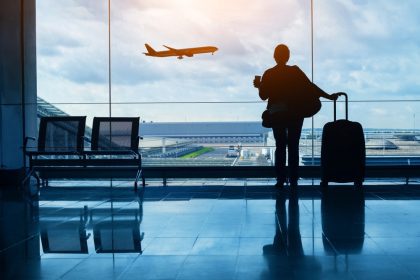New research links exploration with longevity benefits

Exploring the unexpected connection between travel and aging
Recent scientific findings suggest that travel offers more than just adventure—it may also contribute to slowing the aging process. This surprising link between exploration and longevity opens a new chapter in the conversation around healthy living. By embracing travel as more than a leisure activity, individuals may discover its potential to enhance both physical and mental well-being.
Travel’s impact on aging
How exploration benefits aging:
Research indicates that travel experiences can positively influence the aging process by promoting overall health. When we step into novel environments, engage with diverse cultures, and navigate unfamiliar situations, our bodies and minds undergo beneficial stimulation. These experiences challenge routines and foster a sense of vitality that counteracts some effects of aging.
Beyond its surface-level excitement, travel serves as an opportunity to refresh both the mind and body. The unique combination of new environments, enriched social interactions, and varied activities can create a profound impact on health and well-being, helping individuals feel younger and more energized.
Scientific foundations
The research behind travel’s effects on aging:
Studies suggest that travel triggers physiological responses capable of slowing aging. One theory posits that breaking routine patterns through travel stimulates immune function and cellular regeneration. These benefits arise when we encounter new surroundings, engage in unfamiliar tasks, and adapt to changes in our environment.
Another factor at play is the reduction of chronic stress. Traveling often takes us away from daily pressures, allowing the body to recover and reset. Stress hormones, which accelerate aging when consistently elevated, tend to decrease when individuals are immersed in relaxing or joyful travel experiences.
Health enhancement factors
The natural wellness benefits of travel:
Travel offers a built-in combination of activities that support overall wellness, making it an ideal tool for aging prevention. Here are some of the key health-enhancing elements:
- Physical activity: Exploring new places often involves walking, hiking, or other forms of movement that promote cardiovascular health and physical fitness.
- Mental stimulation: Exposure to new cultures, cuisines, and languages challenges the brain, keeping it active and engaged. Mental stimulation is crucial for preserving cognitive function as we age.
- Social interaction: Meeting people from different backgrounds and forming connections across cultures nurtures emotional well-being and reduces feelings of isolation, which are linked to aging.
- Stress relief: Travel provides an opportunity to disconnect from everyday concerns, offering a break that fosters relaxation and renewal.
By naturally combining these elements, travel becomes a holistic approach to improving health while creating lasting memories.
Implementation strategies
How to maximize the health benefits of travel:
To harness the full potential of travel as a tool for healthy aging, thoughtful planning is essential. Balancing adventure with relaxation and prioritizing meaningful experiences can significantly enhance its benefits.
Regular exposure to new environments: Incorporating travel into your routine—even if it’s short weekend trips—keeps the mind and body consistently engaged.
Balance between adventure and rest: While it’s tempting to pack itineraries with activities, leaving time for relaxation ensures a well-rounded experience.
Immerse in local cultures: Taking the time to interact with local communities and participate in cultural activities adds depth to the experience, providing both emotional and cognitive stimulation.
Stay active during travel: Opt for activities that encourage movement, such as walking tours or outdoor adventures, to integrate exercise naturally.
These strategies allow individuals to fully enjoy their journeys while reaping the long-term health benefits associated with travel.
Research implications
What science is uncovering about travel and longevity:
Although the link between travel and aging is still a relatively new area of study, preliminary findings are promising. Researchers are exploring multiple pathways through which travel influences health, from the stimulation of immune systems to the reduction of stress-induced aging effects.
Current evidence suggests that travel promotes overall resilience in the body and mind. However, further research is needed to pinpoint exactly how these mechanisms work and to identify which types of travel activities yield the most significant benefits.
Future perspectives
Travel as a key to aging prevention:
As understanding of the connection between travel and aging deepens, the potential for targeted recommendations becomes clearer. For example, personalized travel itineraries designed to promote specific health goals—such as improving cognitive function or reducing stress—could become a reality.
The ongoing evolution of this research underscores the importance of embracing travel as part of a healthy lifestyle. By viewing exploration not just as an escape but as a proactive approach to aging prevention, individuals can transform their journeys into meaningful investments in their future well-being.
Conclusion
Travel is more than a pastime—it’s an opportunity to enhance health and slow the effects of aging. From stimulating the mind and body to fostering social connections, the benefits of travel extend far beyond the surface.
As research continues to uncover the intricate relationship between exploration and longevity, it becomes increasingly evident that the journey itself holds the key to healthier, more vibrant living. Whether it’s a grand adventure across continents or a simple weekend getaway, every trip offers a chance to invest in your health and well-being for years to come.
















